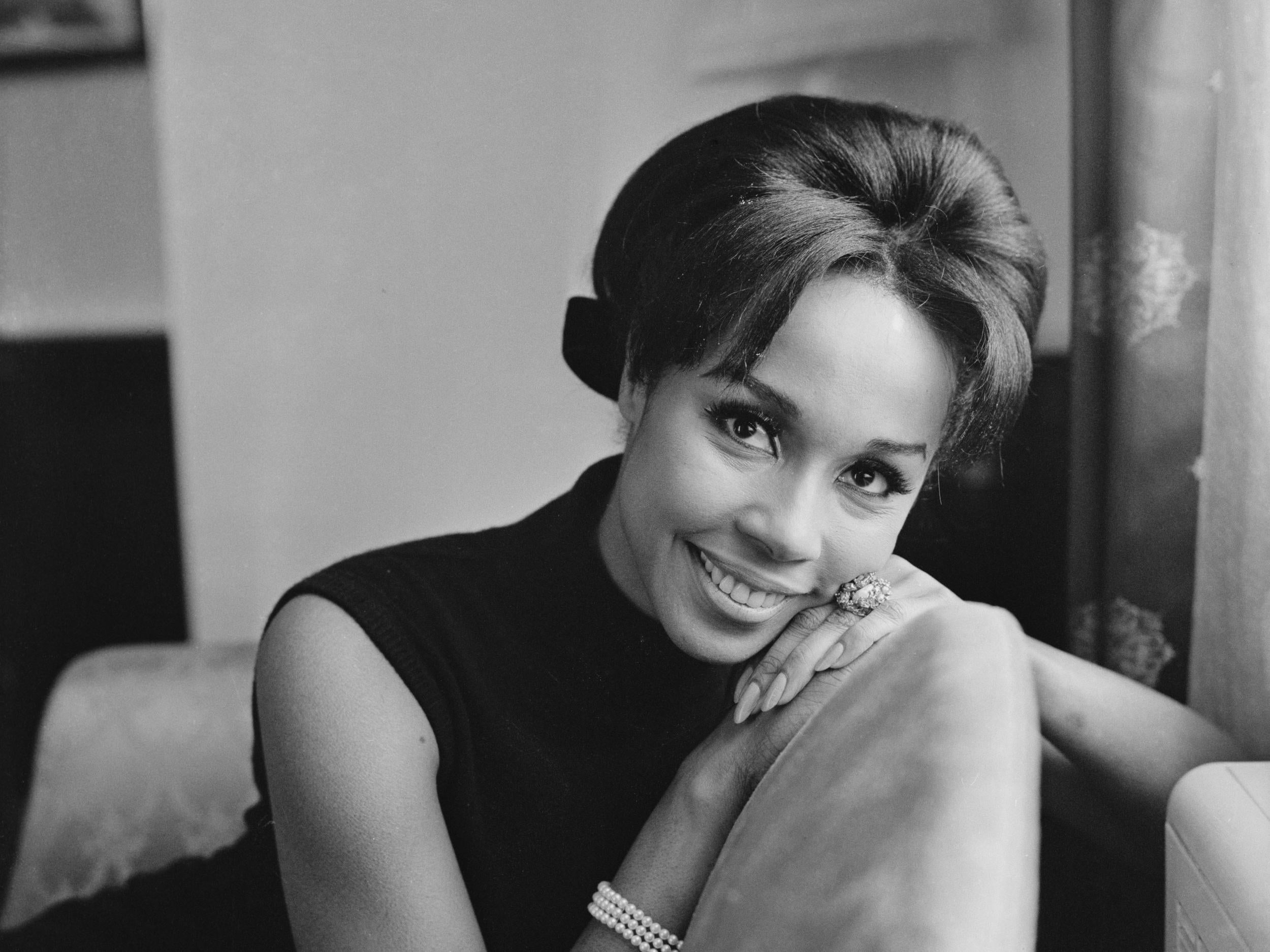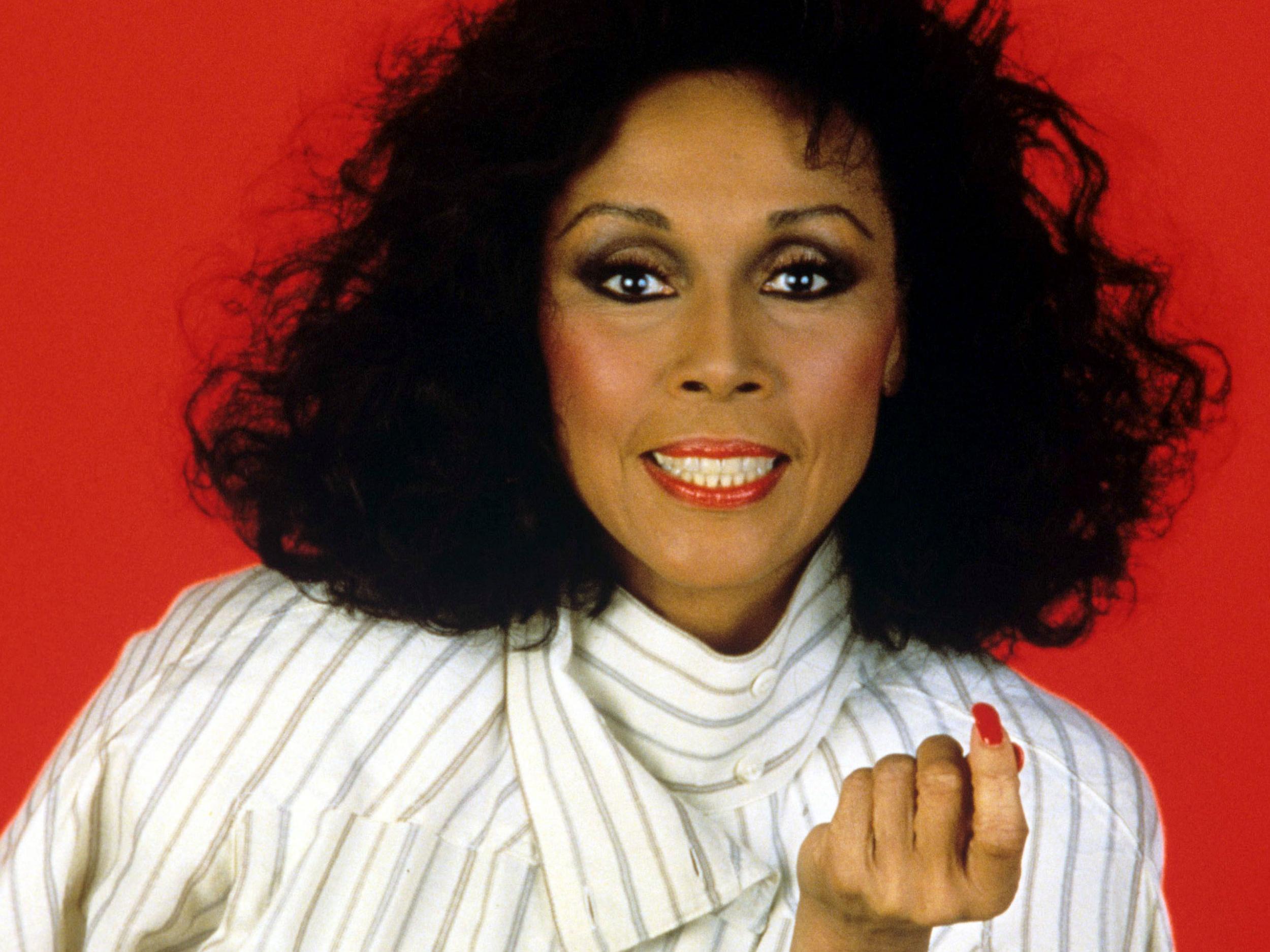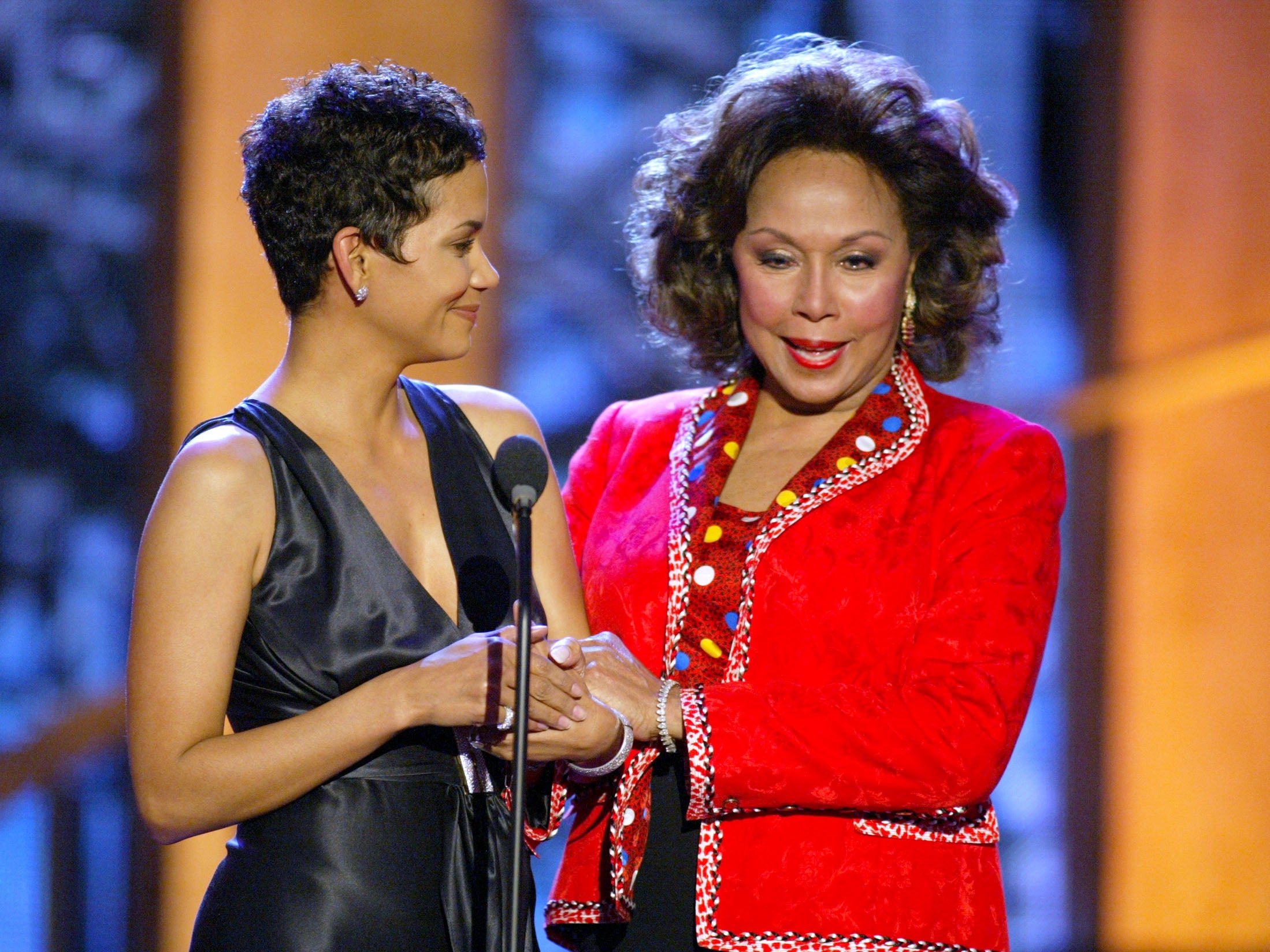Diahann Carroll: Actor who broke down barriers for African American performers on stage and screen
Best known for her role in ‘Dynasty’, Carroll won awards and plaudits across film, TV and musical theatre

Your support helps us to tell the story
From reproductive rights to climate change to Big Tech, The Independent is on the ground when the story is developing. Whether it's investigating the financials of Elon Musk's pro-Trump PAC or producing our latest documentary, 'The A Word', which shines a light on the American women fighting for reproductive rights, we know how important it is to parse out the facts from the messaging.
At such a critical moment in US history, we need reporters on the ground. Your donation allows us to keep sending journalists to speak to both sides of the story.
The Independent is trusted by Americans across the entire political spectrum. And unlike many other quality news outlets, we choose not to lock Americans out of our reporting and analysis with paywalls. We believe quality journalism should be available to everyone, paid for by those who can afford it.
Your support makes all the difference.By the time Diahann Carroll took on her most famous role as the nightclub owner and jet-set diva Dominique Deveraux in the hit US soap opera Dynasty, she had already had a groundbreaking career peppered with a series of firsts for an African American actor.
Carroll, who died last month aged 84, was nominated for three Emmys and an Oscar, as well as having won a Tony Award and a Golden Globe, across a career in film, TV and musical theatre that spanned more than spanned more than six decades.
She was born Carol Diann Johnson in Bronx, New York City, in 1935 to John Johnson, a subway conductor, and Mabel, a nurse. The family moved to Harlem where she grew up, singing at the church choir at the age of six.
She started her modelling career posing for Ebony magazine aged 15, and two years later participated in talent shows under her chosen stage name Diahann Carroll. She was soon touring US nightclubs, not only in the prestigious Latin Quarter nightclub in New York, but also in Las Vegas and Puerto Rico.
At her parents’ insistence, she opted to study for a degree in sociology at New York University, but faced with a life of juggling studies and nightclub work, she struck a deal with her parents: if in two years she hadn’t become successful in her showbusiness career, she would return to college.
Her studies were soon put on hold forever, when the writer Truman Capote offered her a leading role in his Broadway musical House of Flowers, which premiered in 1954 and ran for 165 performances. That year she landed a supporting role in Otto Preminger’s Carmen Jones, one of the first major studio films to feature an African American cast, and Porgy and Bess, Preminger’s film of George Gershwin’s opera.
Carroll’s career was further boosted in 1962 when composer Richard Rodgers asked her to star in a Broadway musical, No Strings, in a role that he had developed with her in mind; a fashion model having an interracial love affair. Carroll would lead for 560 performances, gaining a Tony award for Best Actress, the first African American performer to receive the accolade.

During the 1960s she appeared in films such as Paris Blues (1961), Hurry Sundown (1967, alongside Michael Caine and Jane Fonda) and The Split (1968). But she bemoaned the paucity of film offers: “I’m so jealous that more often than not that kind of career is offered to white actresses ... It’s important for us to keep pushing that door [open, so] the world knows more about African-Americans.”
She had TV success starring as a widowed nurse in Julia (1968-71), a role that earned her a Golden Globe award and an Emmy nomination. Her Oscar nomination for Best Actress came later in 1975 for her role as a single mother of six in Claudine, alongside James Earl Jones, one of the first mainstream movies starring African American actors.
But perhaps her most recognised role was a Dominique Deveraux, an elegant nightclub owner overflowing in fur, diamonds and attitude, in Dynasty (1984-87). As one review in 1984 put it, it was a blow “against one of TV’s last Wasp bastions: the prime-time soap”.
She continued to appear on stage with roles in Same Time, Next Year (1977), Agnes of God (1983) and an off-Broadway appearance in The Vagina Monologues (1999).

She published two memoirs, Diahann (1986) and The Legs Are the Last to Go (2008). In the latter she discussed her personal life, punctuated by four marriages, and her career.
Later in life, Carroll worked to raise breast cancer awareness, which she was diagnosed with and treated for in 1997. She was also a founding member of Celebrity Action Council, a volunteer group focusing on women in rehabilitation from alcohol and drugs. Later roles include appearances in TV shows Grey’s Anatomy (2006) and White Collar (2008-14).
She is survived by a daughter.
Diahann Carroll, actor and singer, born 17 July 1935, died 4 October 2019
Join our commenting forum
Join thought-provoking conversations, follow other Independent readers and see their replies
Comments